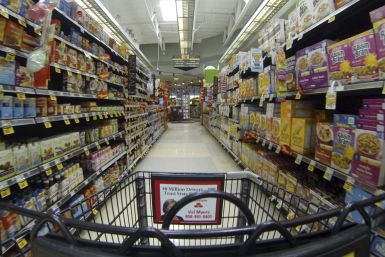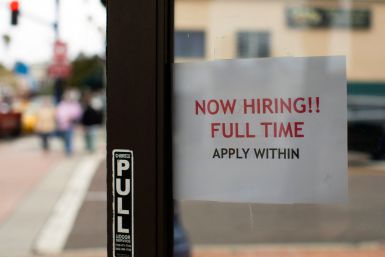Wall Street's main indexes were set for a lower open on Monday, extending declines for a third straight day as investors worried that another massive interest rate hike by the Federal Reserve could tip the U.S.
Top lender State Bank of India has asked exporters to avoid settling deals with Bangladesh in the dollar and other major currencies as it looks to curb exposure to Dhaka's falling reserves, according to an internal document and a source.
Oil prices climbed on Monday as a weaker dollar and supply concerns ahead of the European Union embargo on Russian oil in December offset fears of a global recession that could dampen fuel demand.
The dollar held about 1% below a two-decade peak versus major peers at the start of a week that sees some dozen central bank decisions, headlined by the Federal Reserve on Wednesday and followed by the Bank of Japan and Bank of England the next day.
Share markets idled in Asia on Monday as investors braced for a week littered with 13 central bank meetings that are certain to see borrowing costs rise across the globe and some risk of a super-sized hike in the United States.
Before the pandemic, Doris Fu imagined a different future for herself and her family: new car, bigger apartment, fine dining on weekends and holidays on tropical islands.
Pakistan will "absolutely not" default on debt obligations despite catastrophic floods, the finance minister said on Sunday, signalling there would be no major deviation from reforms designed to stabilise a struggling economy.
The European Central Bank could raise interest rates into next year, causing pain for consumers as it tries to depress demand that is now increasingly adding to sky high inflation, chief economist Philip Lane said on Saturday.
With sharp increases in the price of homes, fuel and food, certain markets in the United States have been hit the hardest when it comes to inflation.
A tough year in markets is leading some investors to seek refuge in cash, as they capitalize on higher interest rates and await chances to buy stocks and bonds at cheaper prices.
The Canadian dollar weakened to its lowest level in nearly two years against the greenback on Friday and Canada's stock market fell more than 1% as investors grew cautious ahead of domestic inflation data and a Federal Reserve interest rate decision next week.
U.S. consumers' near-term inflation expectations fell to a one-year low in September and the outlook over the next five years also improved, easing fears that the Federal Reserve could raise interest rates by a full percentage point next week.
Brazil's central bank is set to keep its benchmark rate at a cycle high of 13.75% on Wednesday and is likely to stick to a hawkish stance for next year to temper inflation expectations, a Reuters poll showed.
The Swiss National Bank will join the 75 basis point rate hike club on Thursday to choke off nearly three-decade-high inflation, according to economists polled by Reuters, who also said price rises were yet to peak despite a strong currency.
Russia's central bank cut its key interest rate by 50 basis points to 7.5% on Friday as inflation slows and the economy needs cheaper lending to limit a slump, but did not repeat recent guidance that it would study the need for further cuts.
Money markets in the euro zone have started pricing in a chance of an ECB rate cut late next year, as traders bet the bank may end up overtightening monetary policy by delivering a series of big rate hikes.
U.S. stock index futures tumbled to two-month lows on Friday after a profit warning from global delivery bellwether FedEx spooked investors already worried about aggressive rate hikes from the Federal Reserve tipping the economy into a recession.
The German subsidiary of Russian oil giant Rosneft was placed under trusteeship on Friday, giving Germany's federal regulator control of the PCK refinery in Schwedt, a key source of fuel for the city of Berlin.
Something has gone missing from Bank of Japan statements about elevated inflation: the word "temporary".
Japan may seem like a lonely voice in the Group of Seven pleading for some currency calm, but the rest may be taking more notice than first appears.
Japan's threats of currency intervention might slow but not stop the yen from hurtling towards three-decade lows before the year end, market analysts and fund managers say.
Oil prices edged higher on Friday but were on track for a weekly decline amid fears of sharp interest rate hikes that would slam global growth and hit fuel demand.
Australia's top central banker on Friday said interest rates are closer to normalisation after a successive run of outsized hikes, although he warned rates are still low, hinting a range of 2.5%-3.5% would be appropriate depending on economic cycles.
The dollar eased from multi-year highs on Friday after a strong rally earlier in the week, though expectations that the Federal Reserve would need to hike more to keep inflation in check sent Treasury yields higher and kept the greenback in demand.
Shareholders in Monte dei Paschi di Siena (MPS) on Thursday approved a new share sale for up to 2.5 billion euros ($2.5 billion), while doubts linger on whether the state-owned bank can pull off its latest cash call.
U.S. retail sales unexpectedly rebounded in August as Americans ramped up purchases of motor vehicles and dined out more amid lower gasoline prices, but demand for goods is cooling as the Federal Reserve aggressively raises interest rates.
Wall Street's main indexes were set for a mixed open on Thursday as a slew of economic data pointed to resilience in the U.S.
The Bank of England and Britain's new finance minister Kwasi Kwarteng will test their ability to jointly manage the economy next week, with the BoE set to raise interest rates to fight inflation and Kwarteng eyeing tax cuts which could stoke prices.
Japan's efforts to stop the yen's sharp falls through unilateral market intervention would only have a limited impact, a senior member of the country's ruling party warned, as data showed the currency's recent tumble blowing the trade gap out to a record.
South Africa's central bank will raise its key interest rate by 75 basis points next week to brake inflation, a Reuters poll found, adding another 25 basis points in each of the following two quarters before pausing for the rest of 2023.



















































